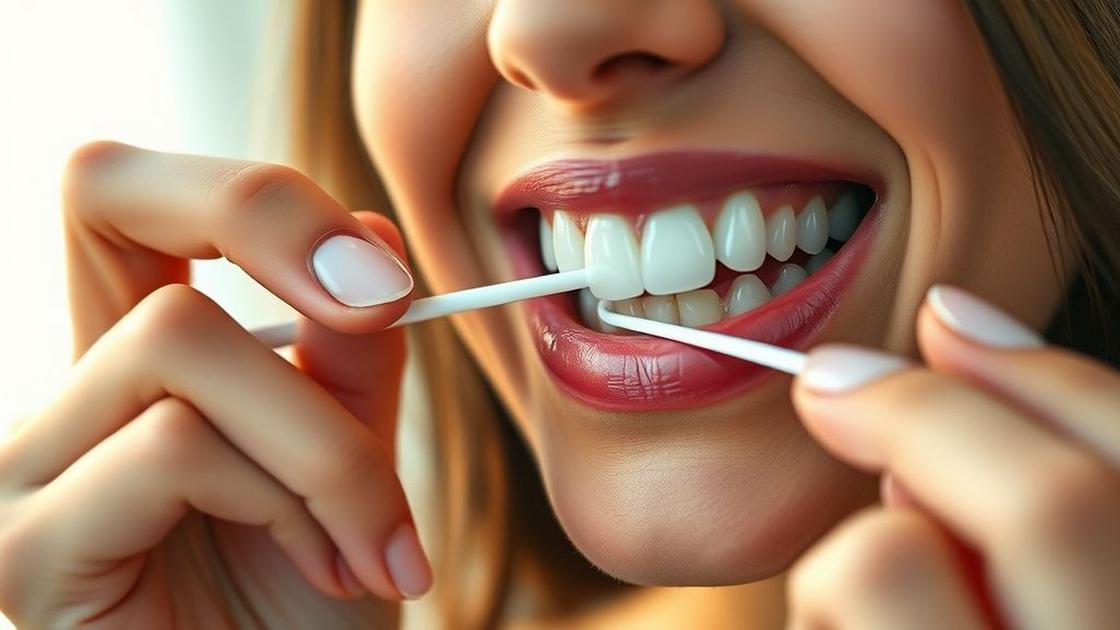Are you looking for the best foods that support healthy teeth and gums? Maintaining oral health is vital, especially for women over 30 who juggle various life challenges. It’s more than just brushing and flossing; the right diet can significantly impact your dental health. In this article, we will delve into delicious foods that can strengthen your teeth and soothe your gums, making a crucial difference in your daily life.
Why Healthy Teeth and Gums Matter
Having healthy teeth and gums is not just about a beautiful smile. It plays a vital role in overall health. Poor oral health can lead to various issues, such as tooth decay, gum disease, and even heart problems. Maintaining healthy teeth and gums is an essential part of your well-being.
Many women over 30 face challenges with oral health, often related to hormonal changes. These changes can affect saliva production and the health of gums. As these shifts happen, it’s crucial to prioritize foods that support oral health.
Understanding the Connection Between Diet and Oral Health
What we eat directly influences our oral health. Consuming nutrient-rich foods helps to fortify teeth and reduce the risk of gum disease. Diet impacts not only our bodies but also the health of our teeth. Foods that are high in sugar can lead to cavities, while others can provide the necessary support for strong oral hygiene.
For instance, a diet lacking in essential vitamins and minerals can lead to weaker enamel and increased susceptibility to decay. Recognizing the connection between what we put into our bodies and how it affects our smiles is crucial for maintaining health.
Top Nutrients for Strong Teeth
Several key nutrients are essential for oral health. These include:
- Calcium: This mineral is crucial for strong teeth and bones.
- Vitamin D: It aids calcium absorption and supports bone health.
- Vitamin C: Vital for gum health and reducing inflammation.
- Phosphorus: Helps to maintain tooth enamel and supports bone structure.
- Fluoride: Protects against tooth decay.
Incorporating these nutrients into your diet can be a game-changer for maintaining your dental health. Think of it as nurturing not just your body but also your smile.
Foods Rich in Calcium for Dental Strength
Calcium is a powerhouse nutrient essential for strong teeth. Some of the best sources include:
- Dairy Products: Milk, cheese, and yogurt are excellent calcium sources.
- Leafy Greens: Kale and spinach provide calcium and are full of other beneficial nutrients.
- Nuts and Seeds: Almonds and sesame seeds are also rich in calcium.
- Fortified Foods: Some cereals and plant-based milks are fortified with calcium.
Choosing calcium-rich foods can help strengthen your teeth and support overall health. Incorporating them into your daily meals is a simple step toward maintaining that radiant smile.
The Role of Vitamin D in Dental Health
Vitamin D is often overlooked in discussions about dental health. This nutrient plays a vital role in the body by aiding the absorption of calcium. Without adequate vitamin D, your body can struggle to use calcium effectively, leading to weaker teeth and bones.
Sources of vitamin D include:
- Fatty Fish: Salmon and mackerel are rich in vitamin D.
- Egg Yolks: A tasty way to add vitamin D to your diet.
- Sunlight: Spending time outdoors helps your body produce vitamin D naturally.
- Fortified Foods: Look for milk and cereal that have added vitamin D.
By ensuring adequate vitamin D intake, you help your body effectively use calcium and maintain healthy teeth and gums.
Hydration and Its Impact on Gum Health
Staying hydrated is often underestimated when it comes to oral health. Water is essential for keeping your mouth moist and helping wash away food particles and bacteria. A dry mouth can lead to gum disease and cavities.
Here are some tips to stay hydrated:
- Drink Water Regularly: Aim for at least 8 cups a day to keep your mouth moist.
- Limit Dehydrating Beverages: Try to reduce intake of sugary and caffeinated drinks.
- Snack on Water-rich Fruits: Watermelon and cucumbers can contribute to hydration.
By prioritizing hydration, you support your gums and overall oral health.
Fruits and Vegetables That Boost Oral Health
Many fruits and vegetables can enhance oral health due to their vitamins, minerals, and fibers. Some top choices include:
- Apples: Act like a natural toothbrush and help clean teeth.
- Carrots: Crunchy vegetables stimulate gums and promote saliva production.
- Oranges: High in vitamin C, which is crucial for gum health.
- Celery: A fibrous veggie that helps clean teeth and freshen breath.
Adding these fruits and vegetables to your diet can significantly impact and support oral health, making it easier to maintain a healthy smile.
Herbs and Spices for Healthier Gums
Herbs and spices are not just flavorful additions; they have properties that promote gum health. Consider incorporating:
- Cinnamon: Known for its antibacterial properties, can help with gum inflammation.
- Turmeric: Has anti-inflammatory properties and may help reduce gum disease severity.
- Mint: Freshens breath and has antimicrobial benefits.
- Clove: Often used in dental care for its pain-relieving properties.
Using these herbs and spices can add flavor to your meals while also benefiting your oral health.
How Sugar Affects Your Teeth
Sugar is one of the most significant contributors to poor oral health. Sugar feeds the bacteria in the mouth, leading to increased acid production, which can erode tooth enamel and lead to cavities.
To limit sugar intake:
- Read Labels: Many foods contain hidden sugars; always check the ingredient list.
- Choose Natural Sweeteners: Opt for honey or maple syrup in moderation.
- Limit Processed Foods: Focus on whole foods that are naturally low in sugar.
Understanding how sugar impacts oral health can motivate you to make healthier choices and protect your smile.
Simple Tips for Incorporating These Foods Into Your Diet
Finally, here are some simple tips to make it easier to include tooth-friendly foods in your diet:
- Plan Your Meals: Incorporate fruits, vegetables, and proteins into your weekly meal plan.
- Keep Snacks Handy: Choose healthy snacks like nuts, yogurt, or cut veggies for easy access.
- Experiment with Recipes: Try new dishes that use the foods discussed, keeping meals exciting and nutritious.
- Stay Educated: Learn more about the importance of dietary choices on oral health to empower yourself.
By embracing these simple changes, not only can you enhance your overall well-being, but you can significantly support your dental health. Remember, the journey to improved oral health starts with small, meaningful steps.






